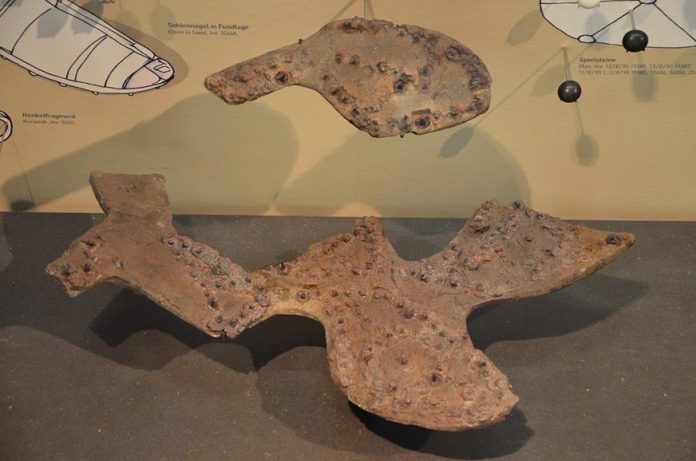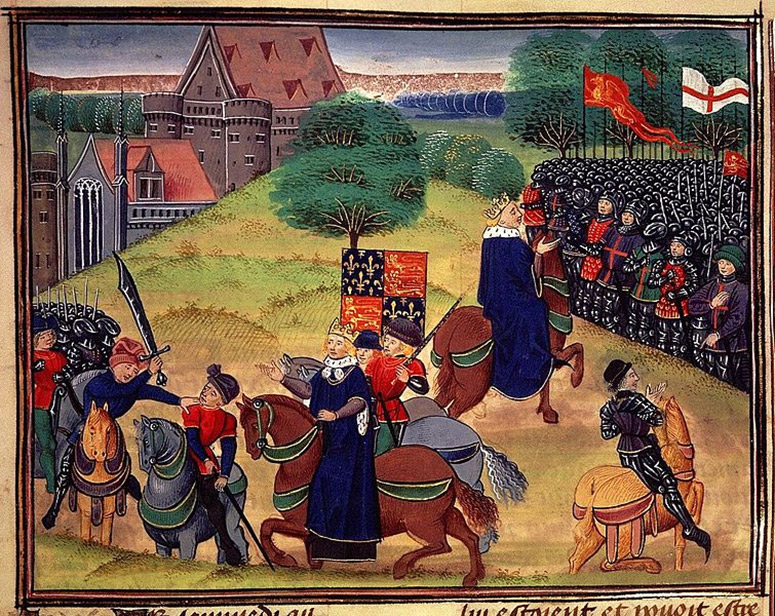
The podcast series, ‘In our time: History’, hosted by Melvyn Bragg, is impressive for its consistent output and its longevity. It offers a list of 300 episodes since 1998 covering diverse world historical events. From this enormous list, my attention focuses on one episode called the “Battle of Teutoburg Forest”. I click on the play button and, very soon, Bragg and several experts on Roman history describe a bleak scene:
In foul weather in the autumn of 9 AD, three Roman legions under the command of Publius Quinctilius Varus halted their march to overlook a narrow, muddy pass in the Teutoburg Forest. The pass was abutted on either side by steep, forest-clad hills. Over the next four days, Germanic warriors were to utterly rout and butcher the whole Roman force of around 20,000 men.
My imagination is already in full play. I hit the pause button and google two topics: “Roman military tactics” and “Varus”.
The Google results tell me that Roman legions had been almost invincible in open country. However, in difficult or dangerous terrain, such as narrow muddy passes, Roman commanders took precautions to avoid catastrophe.
That afternoon at the overlook, Varus had options. He could have chosen to send advanced scouts around the back of the steep hills; he could also have used a river-crossing tactic by sending an advanced party through the pass to establish a defensive fortification on high open ground, thus enabling the gradual ferrying of troops to safety.
During the Gallic Wars from 58 – 50 BC, effective tactics against the Gallic leader, Vercingetorix, occasionally required Julius Caesar to spend several weeks in strong, strategic locations awaiting favourable conditions. Fast-forwarding to the autumn of 9 AD, at the overlook, in the wind and rain, we can speculate that Caesar would have camped overnight. Yet Varus, unlike Caesar, immediately pushed into the narrow pass which denied the Roman legionaries space and time to defend themselves against attack from higher ground.
I hit the play button again.
My mind is full of questions and I need the podcast to answer them. Luckily for me, Melvyn Bragg has an innate ability to cut to the chase with his interviewees, mainly academic historians, who under the guidance of a less skilful host, could lose their audience’s attention. Time and again, Bragg comes to the listener’s rescue by pinning down his guests with cut-through questions.
Thus, when the Roman legions, after sustaining heavy casualties in the narrow pass, succeeded in gaining the higher ground to spend the night in a defensive formation, Bragg is now given to understand that Varus intended to push even deeper into the hills and swamps of the Teutoburg Forest. Bragg is incredulous. ‘Surely, Varus should now retreat, go back?’ With the enemy so close, says Bragg, there are ‘deep forests, swamps, single file, baggage trains cluttering up the route.’ Bragg’s promptings stimulate his guests to unravel the deception lying at the heart of this event. The conversation eventually turns to the consequences of this Roman defeat that reverberate into European and world history.
I have listened to approximately 30 episodes so far in this podcast series. While the episodes often begin with a dry historical overview, Bragg and his guests soon find a way to inject a sense of immediacy into their deliberations. The listener is encouraged to experience how historical characters felt about events unfolding around them.
Let’s take the episode called “The peasants’ revolt”.
In this episode, Bragg’s guests describe a scene, on Saturday 15 June 1381, at Smithfield near London, where a 14-year-old boy, King Richard II, sat on his horse with a few attendants. Richard faced a large force, led by Wat Tyler who had increased his demands for revolutionary reform since a meeting with the King the previous day. Tyler rode a small horse to within a short distance from Richard’s party and behaved in a manner which several attendants took exception to. Knives were drawn. Tyler was struck and fell from his horse. Wounded (and later decapitated), Tyler shouted to his supporters to shoot their arrows.
We are told that Tyler and a fiery preacher, John Ball, had jointly led the rebels through the English countryside to the seat of power in London with promises of freedom from serfdom as well as property and employment rights, and rights to personal liberties. Had the arrows been released into the air, they would have rained down on the King of England and his attendants, potentially, altering the course of British history.

At that moment, Richard rode forward to address Tyler’s force. Bragg’s guests now explain that Richard said something like: ‘Follow me. I am your leader.’ The rebels, who had just lost the charismatic Wat Tyler, now, instantly, had acquired a new leader in King Richard II. The guest describes Richard’s moment as ‘a remarkable act of intuitive leadership, charisma.’
Afterwards, many of the rebels disbursed and went home.
Years after this podcast, Bragg was inspired to publish a fictionalised account, “Now is the time: a novel”, about the participants and events of the peasants’ revolt. This book takes an imaginary peek into the characters of King Richard II, Wat Tyler and John Ball and also lesser known characters important to the enfolding drama. Already half way through this book, I am discovering a sense of immediacy about historical events similar to that offered in Bragg’s podcasts.
In other episodes of ‘In our time: History’, the listener can experience critical moments in the lives of characters like William Cecil who stage-managed the royal succession in the final hours prior to the death of Queen Elizabeth 1, or Thomas Becket’s choice to martyr himself in Canterbury Cathedral in 1170. Bragg and his expert guests are also instantly available to guide us through ancient, medieval and modern events in China, the Middle East, the Americas and Europe.
The BBC website offers ready access to the podcast series, In our time: History.
If you prefer to listen to podcasts on your smartphone, search the Apple store or Google Play to download your favourite podcast app.









